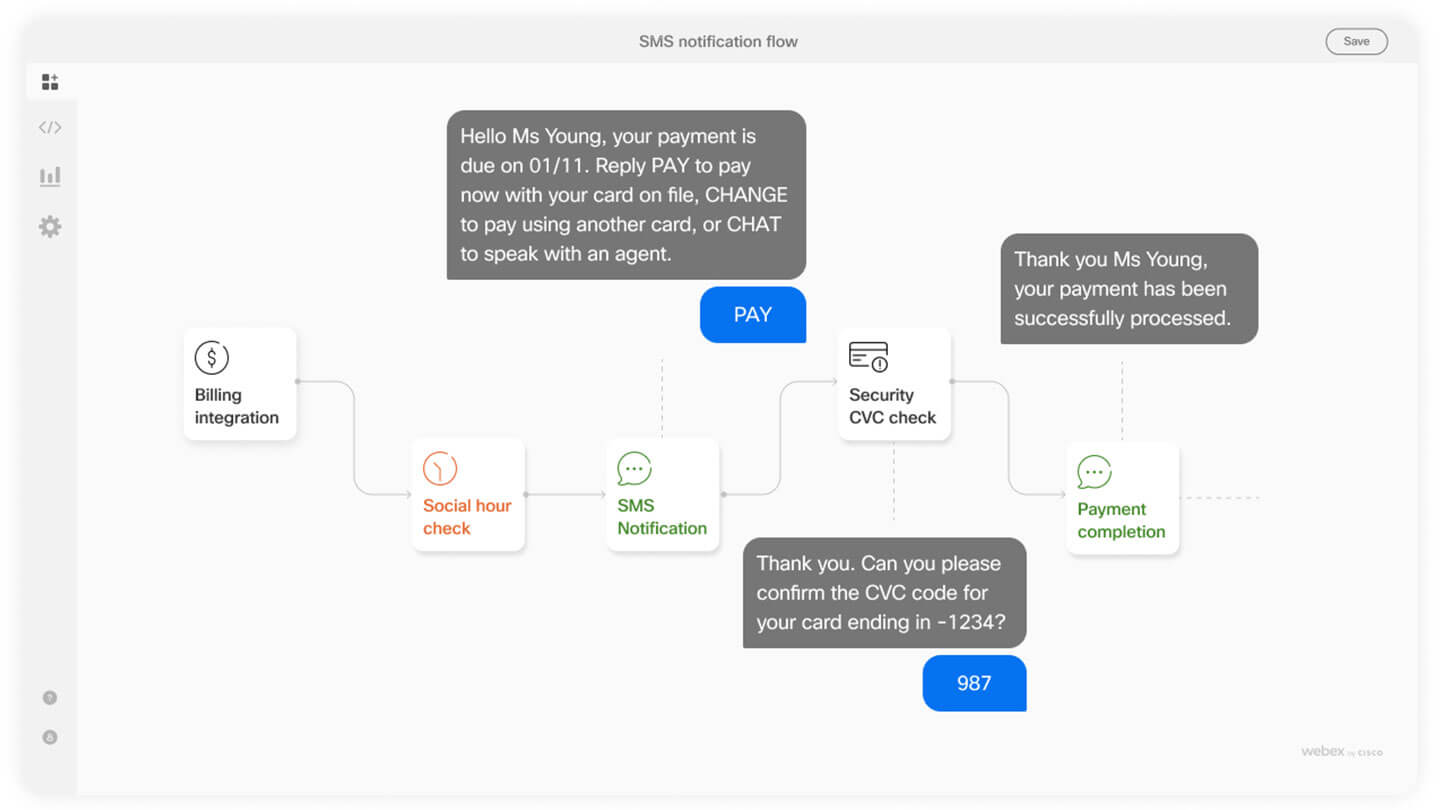SMS marketing platforms - how to choose your ideal SMS provider.
Should you choose a dedicated SMS marketing platform, or take an API-based approach? And how can you find the right provider for your business’s marketing strategy?
Contents
SMS marketing is experiencing a resurgence in popularity. More than 30 years have passed since the first SMS text exchange, and even the recent proliferation of web-based messaging apps has failed to usher the trusty text message into retirement.
SMS marketing is a fast, secure, and cost-effective way to interact with your customers directly (provided they’ve given you permission). And with SMS campaigns receiving open rates up to 98%, and more than 67% of businesses increased their SMS marketing budgets in 2023—it’s important to make the most of this incredibly powerful channel.
But there are two ways to add SMS to your marketing toolbox:

1. Off-the-shelf SMS marketing platform: Great for non-technical users that want to start sending bulk SMS messages quickly.
2. Flexible SMS APIs: Ideal for developers that want total control over how they automate SMS and manage comms.
In this guide, we will explore the difference between using an SMS marketing platform and taking an SMS API approach, how to identify your SMS marketing priorities, and what to look for in the ideal SMS provider.
SMS marketing platforms or SMS APIs—what’s the difference?
SMS marketing platform
An SMS marketing platform is low-code solution that lets marketers and other non-technical users deploy marketing campaigns at scale through SMS.
The best SMS marketing platforms include all the tools you need to plan, optimize, and automate personalized campaigns, such as real time performance dashboards, customer profile management, audience segmentation builders, promotion fulfillment engines, and timely data-driven customer recommendations.
However, depending on your business’s needs and objectives, you may be better off taking an API-driven approach.
SMS APIs
Let’s say you want to empower your marketing, service, and operations teams to orchestrate and automate personalized comms, across multiple channels, at scale. You’ll likely want to invest in an enterprise-grade Communications Platform-as-a-Service (CPaaS) solution that offers flexible SMS APIs—an interface that integrates messaging services directly into your existing software, apps, and websites.
In practice, SMS APIs let developers build bespoke marketing solutions that meet your exact business needs. By integrating SMS with your backend systems, you can unlock valuable insights to help personalize your text campaigns, and embed SMS APIs into your apps and websites to capture contact details and trigger contextual texts.
For example, they may build an automated customer onboarding tool that sends an SMS text welcoming every new customer added to your CRM in a specified region, offering them a choice to sign up for personalized offers and promotions.
To help you find the right approach for you, here are some key factors to consider.
What should your SMS strategy look like?
Before you choose an SMS marketing platform, it’s important to pin down an SMS strategy. This will make it easier to identify what you need from your solution.
Firstly, you’ll need to consider your SMS use cases. For example, do you want to:
Drive customer engagement through personalized promotions and offers
Nurture trust through timely notifications, such as shipping updates
Enable SMS self-service interactions using AI-powered chatbots
Deliver branded SMS messages in bulk and worldwide
Integrate SMS in your omnichannel marketing journeys
We also recommend assessing whether you need a simple platform that anybody in your marketing team can use without IT intervention or if you want to be able to scale SMS and omnichannel use cases to other business areas.
Other key considerations include:
Accessibility vs. customization: Does marketer accessibility and ease of use matter most—or scalability and flexible control over all your SMS integrations and communications?
Budget requirements: Would you prefer to cover your solution development costs and the SMS traffic you use, or pay recurring license fees for an out-of-the-box marketing platform?
IT Infrastructure: Will your SMS marketing campaigns require basic integration with other communication channels and your CRM, or a wide range of complex backend systems?
Audience size and geographic reach: Do you need access to a robust Tier 1 network with direct global connections? And will you send ad-hoc texts or bulk messages to large audience segments at scale?
Features and compliance: What key features will you need to meet your customer’s rising expectations for personalized, end-to-end communications? And what are the location- and industry-based regulations your SMS marketing provider needs to comply with?
If you’re unsure of the answers to any of these questions, you may find inspiration in our beginner’s guide to SMS marketing and best practices.
What to look for in the ideal SMS provider
No matter which approach you take, we recommend you use an SMS marketing solution with the following capabilities:
Contact management
A single, connected, and highly organized view of all prospects and customers, including their contact details and engagement history. This makes it easy for marketers to locate and segment audiences and orchestrate campaign messaging from these contact lists.
SMS automation and scheduling
Low-code visual builders are hugely important to marketer accessibility, simplifying the automation and scheduling of promotional offers, notifications, service alerts, and brand updates—saving time better spent on value-adding tasks. Developers can access APIs and business logic to set contextual triggers that automate communications and defined actions.

Webex Connect SMS notification flow
Scalable system integrations
Simple integrations that connect your backend systems with the latest communication channels, enabling a seamless exchange of data for personalized customer journeys and futureproof channel management
Easy message customization
Flexible customization tools can help you apply customer data and personalize texts based on contextual triggers such as customer locations, service usage, purchase activity, appointments, birthdays, and more.
Compliance
Whether using an SMS marketing platform or an API, you should have access to built-in controls to achieve regulatory compliance related to your geography and industry such as GDPR, HIPAA and CCPAA, and ISO 270001.
Proactive protection and support
Ensure your SMS provider delivers proactive protection that monitors traffic for “smishing” and deceptive activity. It should also provide 24/7 service support for total peace of mind.
SMS marketing platform or SMS APIs? Webex has you covered.
We’ve outlined two approaches here. Whichever one is right for your marketers and developers, Webex has the proven solutions to help you implement it successfully.
Webex Connect is an enterprise-grade CPaaS platform purpose-built to help businesses like yours orchestrate and automate meaningful omnichannel journeys.
Pre-configured integrations and bespoke APIs allows you to flex for specific marketing communication needs.
A direct Tier 1 messaging network with integrated global compliance, ensuring your marketing interactions always take the fastest and safest path to your audience.
Webex Campaign is our dedicated SMS marketing tool for marketeers, that empowers non-technical users to easily create and deploy personalized marketing campaigns at scale.
Get in touch today to discuss how SMS marketing works with Webex Connect and Webex Campaign. You can also sign up for a free solution demo here.